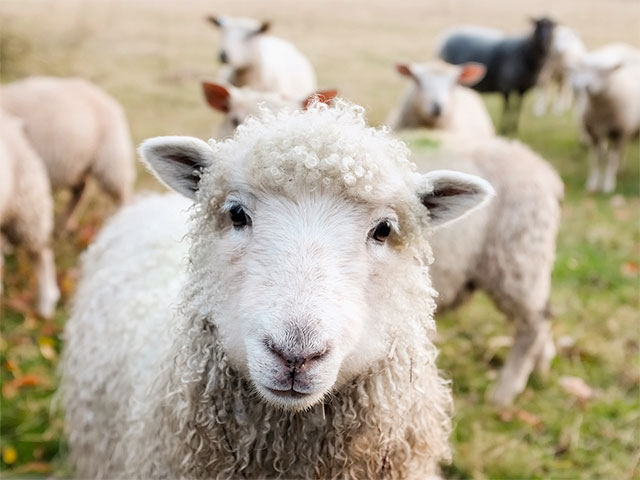The Sheep of the Lord
by Sarah Ivill
From TABLETALK
One of the most comforting truths to remember when we are suffering or walking with a family member or friend through suffering is that our Good Shepherd is tenderly watching over His sheep. In the midst of relational difficulties, marital trouble, parenting challenges, health problems, depression, financial difficulties, job loss, and things like these, believers need to know that their Shepherd is present with them, providing for them, protecting them, and keeping His promises to them.
Perhaps there is no better place in Scripture to understand that we are the sheep of the Lord than in John 10:1–18. Jesus is the true “shepherd of the sheep” whose “sheep hear his voice, and he calls his own sheep by name and leads them out” (vv. 2–3). He brings out “all his own” and “goes before them” while they willingly “follow him, for they know his voice” (v. 4). How comforting that Jesus knows us by name. He pursues us, protects us, and provides for us. He saves us from the guilt and condemnation of sin. And He secures our inheritance in the new heaven and the new earth.
Jesus also declared, “I am the door of the sheep” (v. 7). Anyone who wants to enter the kingdom of God must enter by Jesus (v. 9). He alone saves. He can offer abundant life because He “lays down his life for the sheep” (vv. 10–11). To give God’s people abundant life, Jesus had to die on the cross, and this He did willingly. Unlike “a hired hand” (v. 12) who puts his own welfare before that of the sheep, sacrificing nothing so that he can save his own skin, Jesus put Himself on the cross, sacrificing everything so that He could save God’s people from their sin.
Anyone who wants to enter the kingdom of God must enter by Jesus. He alone saves.
As the Good Shepherd, Jesus knows His own and they know Him, just as the Father knows Him and He knows the Father (vv. 14–15). What intimacy believers have with Christ. Remarkably, this intimacy is not just between the Father and the Son or between the Son and God’s people but also between believers. There will be a people from both Jews and gentiles who will be brought together as “one flock” under “one shepherd” (v. 16). Therefore, we should comfort one another in the Lord.
Jesus will not just “lay down” His life, but He will also “take it up again” (v. 17). Such humble obedience pleased His Father, who had appointed Him to accomplish redemption for His people. Jesus, who had the authority to “lay” His life “down of Hisown accord” and “authority to take it up again” (v. 18), willingly submitted to His Father’s will, which resulted in His exaltation (Phil. 2:9–11). Let us, then, lift high the name of Jesus.
The prophets had spoken of this Good Shepherd who would both “gather the lambs in his arms” and be “like a lamb that is led to the slaughter” in order to gather “the outcasts of Israel” and “others to him” (Isa. 40:11; 53:7–8; 56:8). The Lord promised to “gather the remnant of my flock” and “set shepherds over them who will care for them” (Jer. 23:2–4). Ultimately, there would be one Shepherd, “a righteous Branch” who would “reign as king and deal wisely” (Jer. 23:5; see also Ezek. 34:23; 37:24).
When Jesus declared that He is the Good Shepherd, He was claiming to be the fulfillment of these promises. He is “the great shepherd of the sheep” who secured our redemption “by the blood of the eternal covenant” (Heb. 13:20). He is “the Shepherd and Overseer of your souls” and “the chief Shepherd,” who will one day appear to give godly undershepherds “the unfading crown of glory” (1 Peter 2:25; 5:4). In the new Jerusalem, “the Lamb in the midst of the throne will be their shepherd, and he will guide them to springs of living water” (Rev. 7:17).
Dear believer, you need to know your identity as the sheep of the Lord while you suffer. When you are afraid, the Good Shepherd is present with you. When you are in need, He provides for you. When you are in danger, He protects you. We can be certain that “goodness and mercy shall follow us all the days of [our lives], and [we] shall dwell in the house of the Lord forever” (Ps. 23:6).
Sarah Ivill is a Bible teacher, conference speaker, and a graduate of Dallas Theological Seminary. She is author of several books, including The God Who Hears. She also writes regularly at SarahIvill.com.


Recent Comments